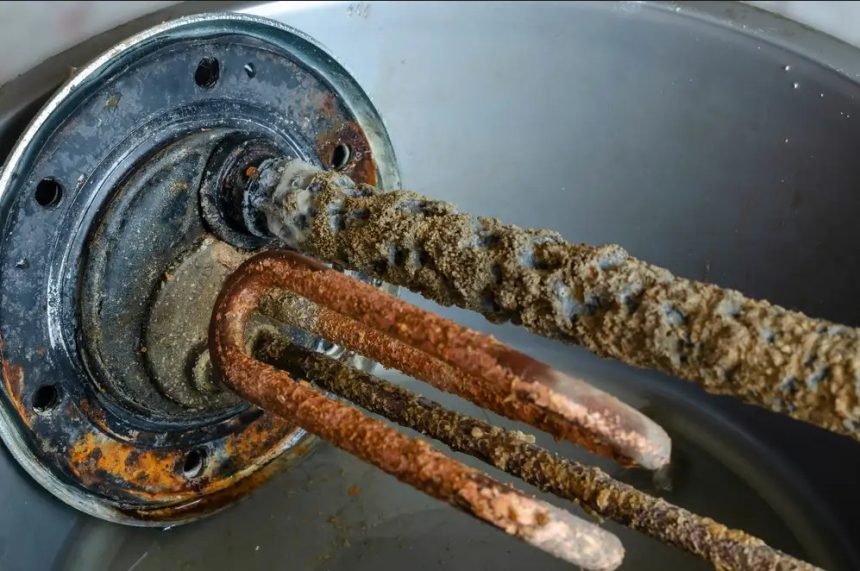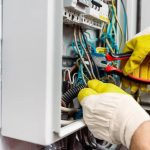Once your water heater succumbs to rust and mineral buildup, your system’s efficiency plummets, utility bills spike, and you’re left with a device that can leak or be water-damaged.
Ignoring corrosion and delaying water heater repair in Scottsdale, AZ, is a direct path to costly replacements. Here’s why.
The Hidden Impact of Corrosion on Your Water Heater
Corrosion actively damages your water heater’s ability to function efficiently. Aside from this and being an eyesore, it also leads to:
- Higher energy costs – Rust and sediment create an insulating barrier, forcing the system to work harder to heat water.
- Reduced water pressure – Corrosion buildup can clog pipes, limiting water flow.
- Leaks and structural damage – As metal weakens, leaks become inevitable, leading to potential water damage in your home.
“Corrosion is the number one enemy of any functional water heater,” says a local plumbing expert. “Even small patches of rust run deep, indicating structural issues that shouldn’t be ignored.”
How Corrosion Affects System Lifespan
A well-maintained water heater typically lasts 10 to 15 years, but corrosion can cut that time dramatically. This doesn’t sound problematic until you’re faced with the need to seek a water heater replacement in less time than the advertised service life.
Worse, If rust is left unchecked, it can eat away at the tank’s integrity, making leaks an inevitability.
Homeowners seeking a longer-lasting alternative should consider buying a tankless water heater. These bypass the traditional storage tank and reduce exposure to corrosive elements. However, even these systems need maintenance to prevent buildup in pipes and heat exchangers.
Why Regular Maintenance is Non-Negotiable
Routine maintenance is the best defense against corrosion. A few key actions can significantly extend your water heater’s life:
- Flushing the tank annually – Flushing should be part of annual water heater maintenance. It removes sediment buildup, preventing clogs and inefficiency.
- Checking and replacing the anode rod – This metal rod helps play a sacrificial role, protecting the tank from rusting as it attracts corrosive sediments and minerals.
- Professional inspections – A licensed plumber can spot early corrosion and address it before it spreads.
A Guide to Corrosion: Identifying the Warning Signs
Understanding the different stages of corrosion helps homeowners act before major damage occurs:
- Early signs – Pay attention to light discoloration in water and small rust patches on the tank.
- Intermediate corrosion – Frequent hot water issues and slight leaks near fittings are red flags.
- Advanced corrosion – Visible holes, major leaks, and rust-colored water throughout the home.
Repair vs. Replace: Making the Right Choice
Fortunately, not all corrosion means immediate replacement. Small rust patches or minor leaks may be repairable, but if you notice the following, it’s time to consider buying a new system:
- Water discoloration – This is problematic if the issue persists despite flushing the tank.
- Leaking seams or fittings that continue despite patching.
- 10+ years of use – This, combined with increasing efficiency issues, means a replacement is due.
DIY Maintenance vs. Professional Servicing
Although the more handy homeowner can handle some basic water heater maintenance, certain tasks should always be left to a professional, including:
DIY Maintenance:
- Regularly flushing the tank
- Checking the pressure relief valve
- Monitoring water discoloration
Professional Maintenance:
- Anode rod replacement
- Deep sediment removal
- Corrosion treatment and prevention
Types of Water Heater Corrosion (And What Causes Them)
Corrosion comes in many shapes and forms, with each stemming from different causes:
- Galvanic corrosion – Occurs when two dissimilar metals interact, often found in water heater fittings.
- Pitting corrosion – Small but deep holes form, leading to leaks.
- General rusting – A result of prolonged exposure to moisture and oxygen.
Hard Water and Its Role in Corrosion
Hard water accelerates corrosion by leaving traces of calcium and magnesium mineral deposits that weaken the tank. A water softener can help by reducing mineral buildup and extending the life of your water heater.
Emergency Signs of Water Heater Failure
If you notice any of these, act fast to avoid a catastrophic failure:
- Loud banging or popping noises from sediment buildup
- Significant rust-colored water from taps
- Pooling water around the base of the heater
The Cost of Ignoring Corrosion
Letting corrosion go unchecked can result in:
- Sudden leaks that damage floors and walls
- Skyrocketing energy bills due to inefficiency
- Complete system failure, forcing an emergency replacement
Corrosion is a sign that a water heater is under stress. With regular maintenance, early detection, and professional servicing, you can extend its lifespan and avoid expensive repairs. If your system is showing signs of rust or inefficiency, don’t wait. Contact a plumbing expert today to prevent a minor issue from turning into a major disaster.














